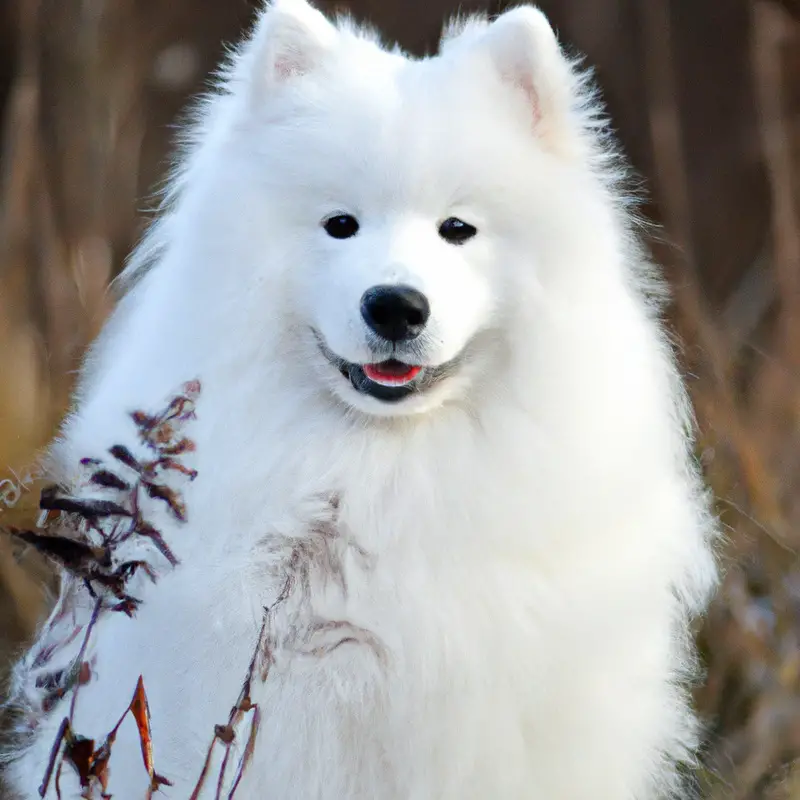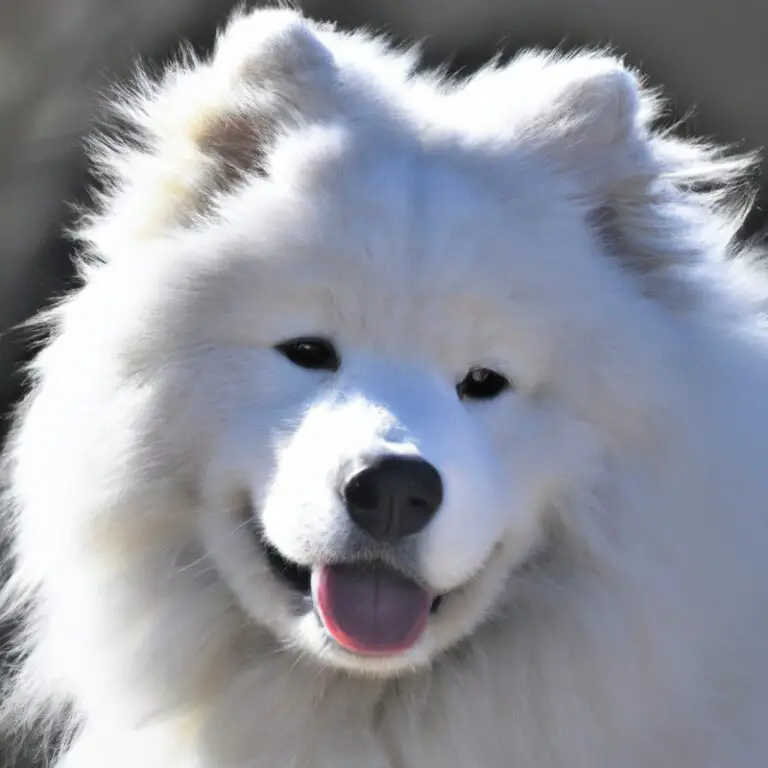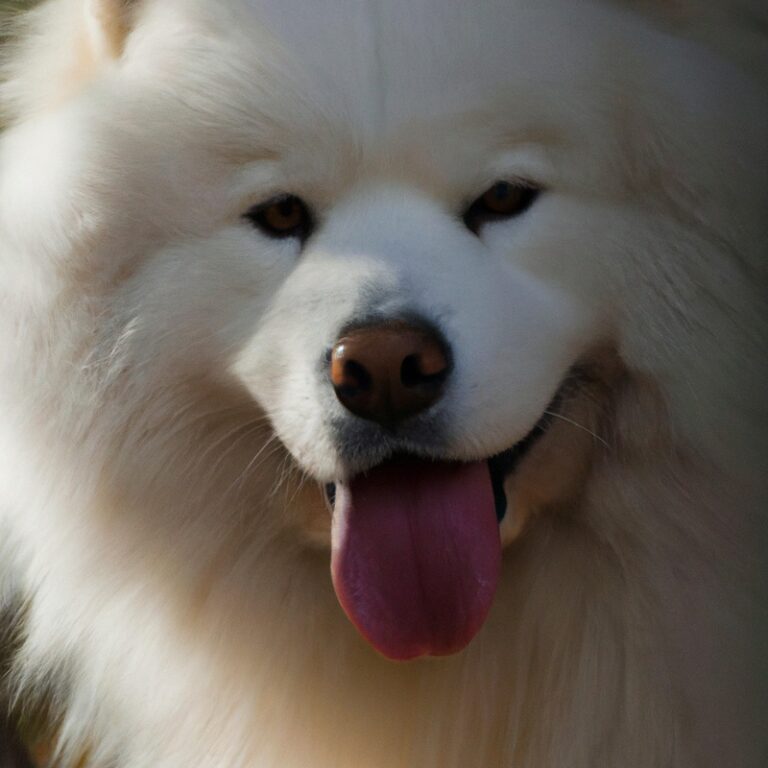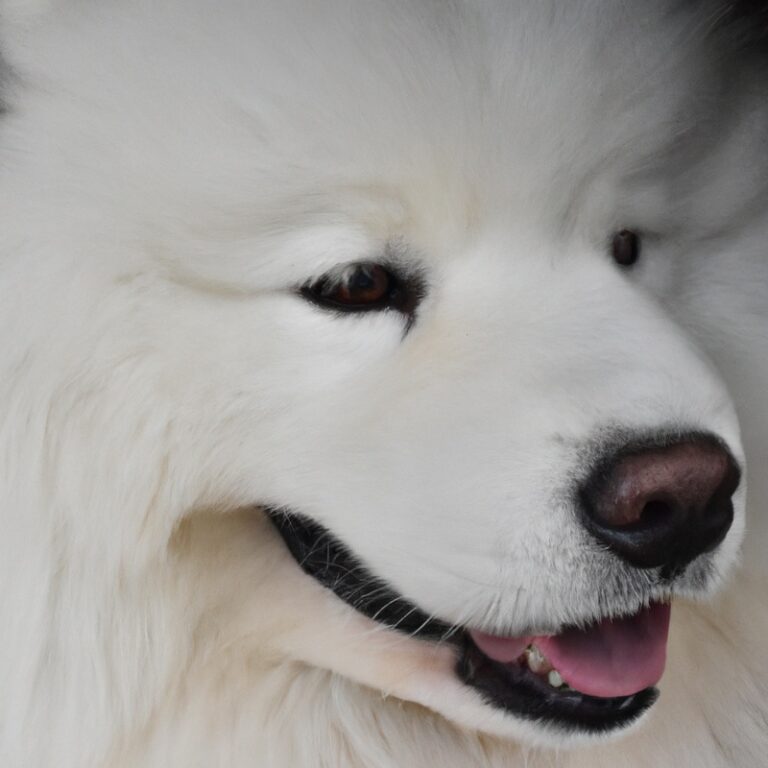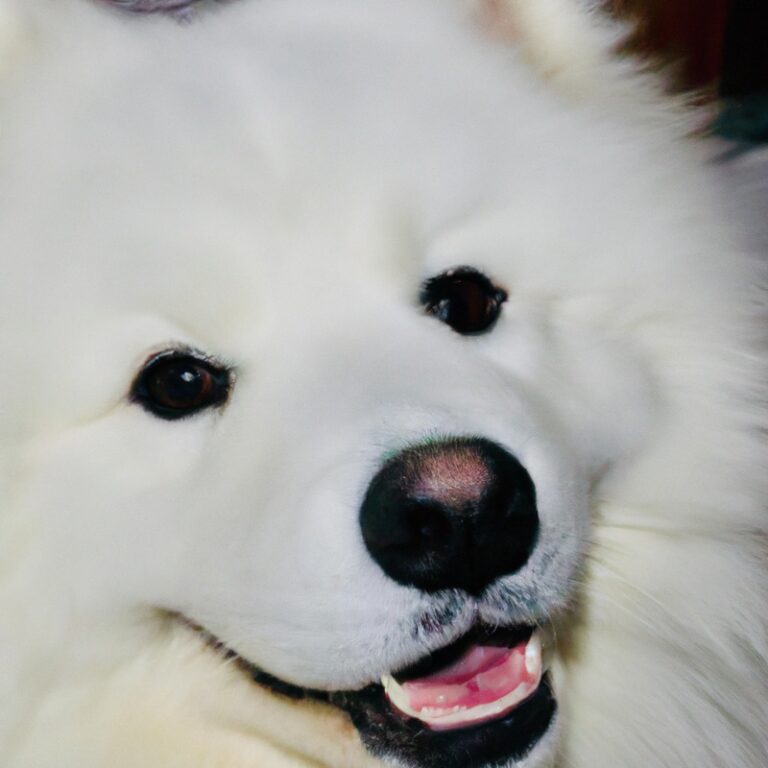Are Samoyeds Good With Other Dogs?
Key Takeaways:
- Samoyeds generally have a friendly and sociable nature towards other dogs.
- Early socialization is crucial to ensure positive interactions between Samoyeds and other dogs.
- Proper training can help Samoyeds develop good social skills with other dogs.
- Individual personalities and experiences can also play a role in how well a Samoyed gets along with other dogs.
Are you considering getting a Samoyed but worried about how it will get along with other dogs? Well, you’re in the right place! As a seasoned dog expert, I can tell you that the answer to whether Samoyeds are good with other dogs is not a simple “yes” or “no.” There are several factors to consider, such as socialization, size and energy level, pre-existing dog dynamics, and breed characteristics.
In this article, I’ll dive deep into these factors and provide helpful tips for introducing a Samoyed to other dogs.
Plus, I’ll address common challenges and provide guidance on how to overcome them. Stay tuned to find out if Samoyeds are the social butterflies you’re looking for!
| Factors | Samoyeds | Other Dogs |
|---|---|---|
| Size | Medium to Large | Varies |
| Temperament | Friendly, Gentle | Varies |
| Socialization | Required | Required |
| Energy Level | Moderate | Varies |
| Trainability | High | Varies |
| Prey Drive | Low | Varies |
| Compatibility | Generally good | Varies |
Factors to Consider
Socialization: Training your Samoyed
Socialization is key when training your Samoyed.
Expose your dog to various people, animals, and environments from an early age.
This will help them develop good social skills and prevent any potential aggression towards other dogs.
Teach them how to interact calmly and politely with other dogs, and reward them for positive behavior.
Regularly engage in supervised playdates and obedience classes to reinforce their socialization skills.
Remember, consistent and positive reinforcement is the key to successful training.
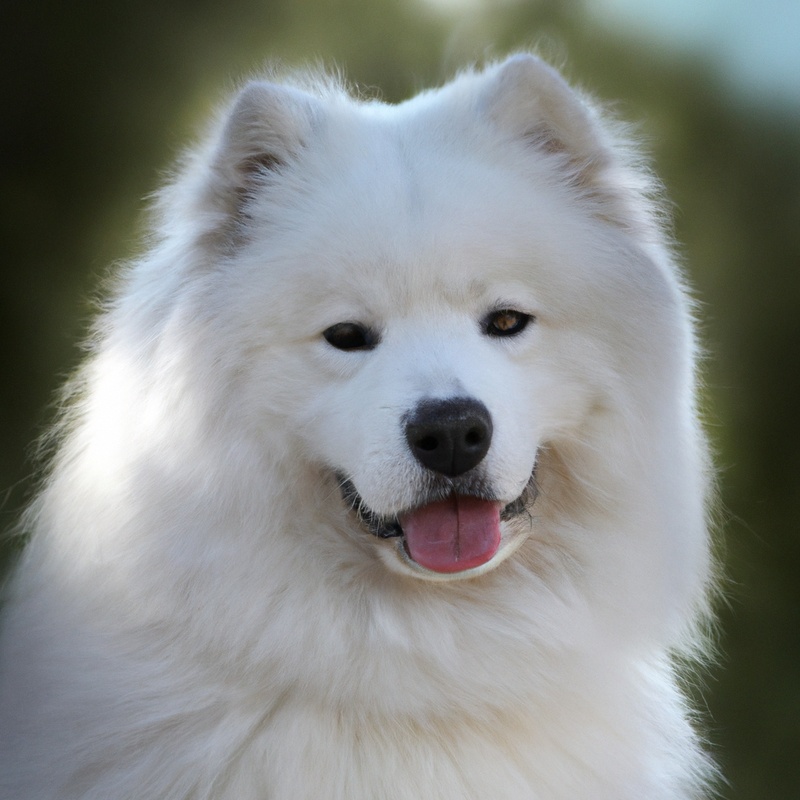
Size and Energy Level
Size and Energy Level: The size and energy level of a dog are important factors to consider when determining their compatibility with other dogs. In the case of Samoyeds, they are medium to large-sized dogs with a sturdy build.
They have a high energy level and require regular exercise to stay happy and healthy.
Due to their size and energy, it is crucial to ensure that they are properly socialized and trained from an early age to interact well with other dogs. Additionally, providing them with enough physical and mental stimulation will help prevent any potential behavior issues that may arise from their energy level.
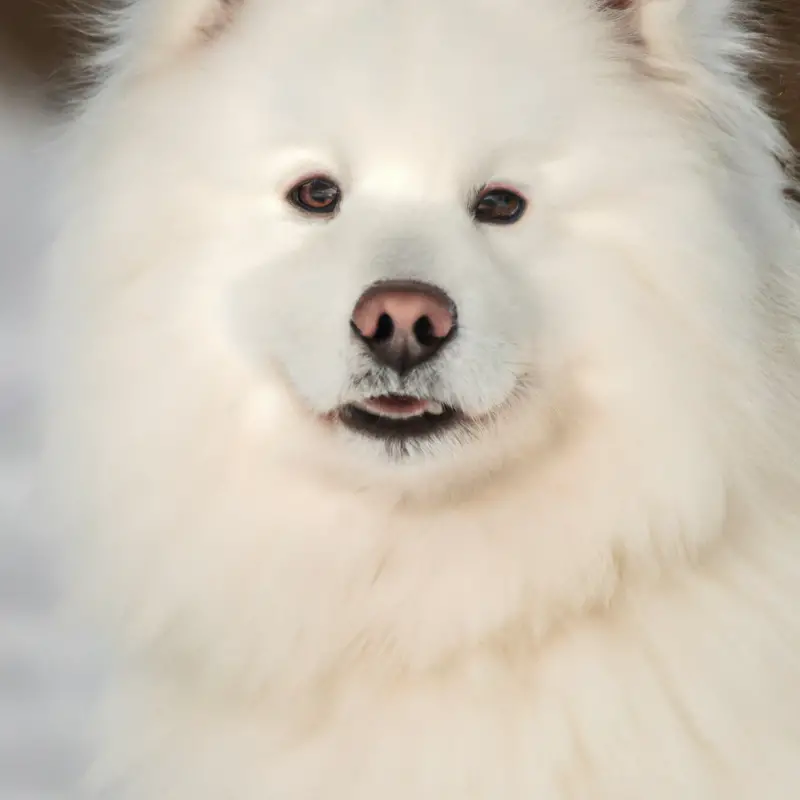
Gender and Neutering
Gender and neutering can play a role in how Samoyeds interact with other dogs.
Intact males may be more prone to dominance issues, while intact females may be less tolerant of other females.
Neutering can help reduce these behaviors and make dogs more social and friendly.
It’s important to consider the individual temperament of your Samoyed when deciding on neutering.
Consulting with a veterinarian about the benefits and risks is recommended.
Pre-existing Dog Dynamics
Pre-existing dog dynamics play a significant role in determining if Samoyeds will get along with other dogs.
It’s important to consider factors like temperament, socialization, and size matching.
Dogs with friendly and adaptable personalities tend to have an easier time getting along with Samoyeds.
Proper socialization and training for both Samoyeds and other dogs can also greatly influence their ability to coexist peacefully.
Introducing dogs gradually and in a controlled environment can help foster positive interactions.
Remember to monitor their interactions closely and address any signs of aggression or discomfort.
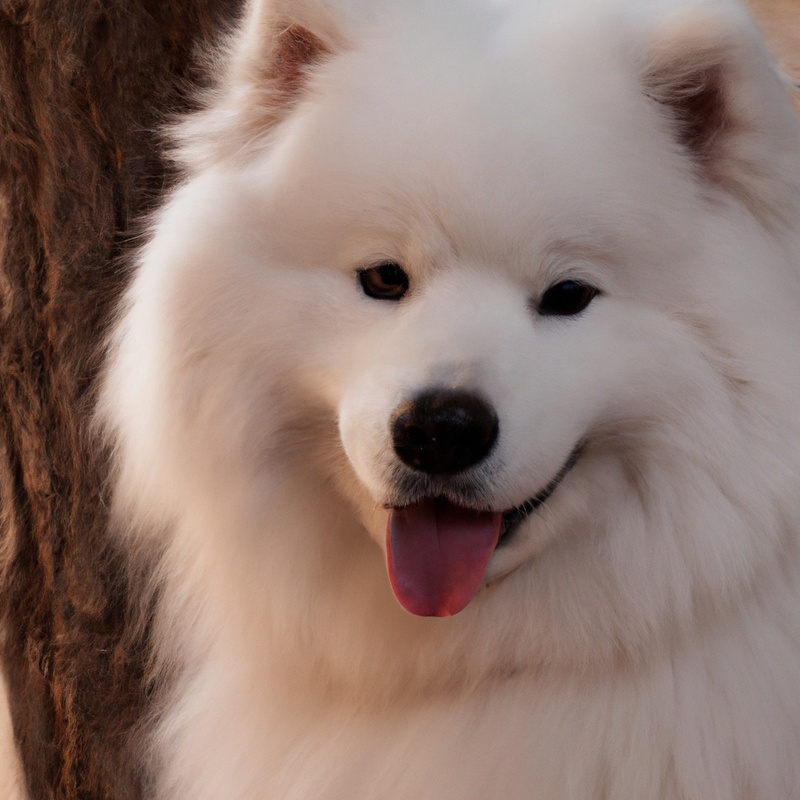
Breed Characteristics and Compatibility
Samoyeds are known for their friendly and sociable nature.
They tend to get along well with other dogs and can be a good choice if you already have a furry companion at home.
However, it’s important to consider the individual temperament of each dog.
Proper introductions, positive socialization, and supervision are key to ensuring a harmonious relationship between Samoyeds and other dogs.
Additionally, early training and ongoing socialization can help prevent any potential issues.
Remember, every dog is unique, so it’s essential to consider compatibility on an individual basis.
Tips for Introducing a Samoyed to Other Dogs
Slow and Controlled Approach
A slow and controlled approach is important when introducing a Samoyed to other dogs. Start by allowing them to observe each other from a distance, gradually decreasing the distance over time.
If they show signs of discomfort, separate them and try again later.
Ensure they have plenty of positive experiences together, like going on walks or playing games. Always supervise their interactions and be patient with their progress.
Neutral Territory
Neutral territory is key when introducing a Samoyed to other dogs.
Find a location where neither dog feels possessive or territorial.
Parks or open spaces are great options.
Start with the dogs on opposite sides of the area, gradually reducing the distance over time.
Allow them to sniff and observe each other without any tension.
Keep a close eye on their body language and be ready to intervene if necessary.
Patience and positive reinforcement are essential for a successful introduction on neutral territory.
Positive Reinforcement
Positive reinforcement is a highly effective approach when it comes to training dogs, including Samoyeds.
It involves rewarding desired behaviors rather than punishing unwanted ones, creating a positive and enjoyable learning experience.
By using treats, praise, and toys as rewards, you can motivate and encourage your Samoyed to behave well around other dogs.
Remember to be consistent and patient with your training, and to only use positive reinforcement techniques.
That way, you can foster a harmonious relationship between your Samoyed and other dogs.
Supervision and Monitoring
Supervision and monitoring are essential when introducing a Samoyed to other dogs. It’s important to closely watch their interactions to ensure everyone’s safety.
Keep an eye out for any signs of aggression or discomfort, such as growling or hiding.
Maintain control of the situation by using leashes or barriers if necessary. Stay calm and intervene if any conflicts arise.
By actively supervising and monitoring their interactions, you can create a positive and safe environment for all dogs involved.
Common Challenges and How to Overcome Them
Jealousy and Resource Guarding
Jealousy and resource guarding can be challenges with Samoyeds.
Jealousy may occur when you give attention to another dog, causing them to feel left out.
Resource guarding is when a Samoyed becomes possessive over their food, toys, or other items.
To overcome jealousy, ensure you give each dog individual attention and praise.
To address resource guarding, establish clear boundaries and work on positive reinforcement training to teach your Samoyed to share.
Seek professional help if the behaviors persist.
Dominance Issues
Dominance issues can sometimes arise when introducing a new dog to a household that already has existing dogs. It’s important to establish clear rules and boundaries to prevent any potential conflicts.
One way to address dominance issues is by providing consistent and fair leadership.
This involves ensuring that you are the one making decisions for your dogs and not allowing them to assert dominance over each other. Additionally, providing separate resources such as food bowls and toys can help minimize any competition or territorial behaviors.
Regular training and socialization are key to promoting positive interactions and reducing dominance-related conflicts among dogs.
Fear and Anxiety
Fear and anxiety can be common in dogs, including Samoyeds. Some factors that may contribute to fear and anxiety in Samoyeds include lack of socialization, traumatic experiences, or genetic predisposition.
It’s important to identify the triggers and work on counter-conditioning and desensitization techniques to help your Samoyed overcome their fears.
Seeking the help of a professional dog trainer or behaviorist can be beneficial in creating a tailored plan for your Samoyed’s specific needs.
Aggression and Fighting
Aggression and fighting can be potential challenges when it comes to Samoyeds and other dogs.
It’s essential to remember that every dog is unique, and aggression can be influenced by various factors such as genetics, socialization, and training.
To address and prevent aggression and fighting, consider these tips:
- Start early: Begin socializing your Samoyed with other dogs from a young age to promote positive experiences and reduce the likelihood of aggression.
- Proper training: Teach your Samoyed basic obedience commands, such as “sit,” “stay,” and “leave it.” This will help establish boundaries and maintain control in potentially tense situations.
- Positive reinforcement: Use positive reinforcement, such as treats and praise, to reward good behavior and discourage aggressive tendencies. This can create a more harmonious relationship with other dogs.
- Supervision: Always monitor interactions between your Samoyed and other dogs, especially when meeting unfamiliar dogs. This allows you to intervene and redirect any signs of aggression before they escalate.
- Seek professional help: If you’re struggling with aggression issues, consult a professional dog trainer or behaviorist. They can provide guidance tailored to your Samoyed’s specific needs.
Remember, it’s important to approach aggression in a calm and understanding manner.
With patience, consistency, and proper guidance, you can help your Samoyed develop positive relationships with other dogs.
Frequently Asked Questions
Can Samoyeds get along with smaller or larger breed dogs?
Yes, Samoyeds can generally get along well with smaller or larger breed dogs. They tend to have a friendly and gentle nature, making them sociable with other canines.
However, it’s important to introduce them properly and supervise initial interactions to ensure a positive experience.
Giving them time to get acquainted, using positive reinforcement, and providing enough space can help establish a harmonious relationship between Samoyeds and other dogs. Remember, every dog is unique, so individual personalities and temperaments may also come into play.
How do Samoyeds react to other pets, like cats?
Samoyeds generally have a friendly and sociable nature, which often extends to other pets, like cats. However, it’s important to introduce them properly and supervise their interactions.
Give them time to adjust to each other’s presence and provide separate spaces if needed.
Gradual introductions, positive reinforcement, and supervised playtime can help foster a harmonious relationship between Samoyeds and cats. Remember to ensure the safety and comfort of both pets during the introduction process.
Are male or female Samoyeds more compatible with other dogs?
Male or female Samoyeds can both be compatible with other dogs.
The compatibility between dogs is not solely determined by their gender but rather individual personalities and socialization experiences.
It’s important to properly introduce and socialize your Samoyed with other dogs from an early age to ensure positive interactions.
Regular socialization, training, and supervision are key to fostering good relationships between your Samoyed and other dogs.
Monitor their interactions and provide positive reinforcement to promote a harmonious bond.
Is it necessary to neuter a Samoyed to improve their compatibility with other dogs?
Neutering a Samoyed is not necessary to improve their compatibility with other dogs. While neutering can sometimes help reduce aggression in dogs, it is not a guaranteed solution and its effectiveness can vary from dog to dog.
It’s important to consider other factors such as proper socialization, training, and individual temperament when assessing a Samoyed’s compatibility with other dogs.
Neutering should be a personal decision made in consultation with a veterinarian, taking into account the specific needs and circumstances of your Samoyed.
Final Verdict
I firmly believe that while Samoyeds have a generally friendly and sociable nature, the compatibility of any dog with others greatly depends on various factors.
These include proper socialization, size and energy level, pre-existing dog dynamics, and breed characteristics.
When introducing a Samoyed to other dogs, it is crucial to take a slow and controlled approach, use neutral territory, employ positive reinforcement techniques, and provide constant supervision.
However, challenges such as jealousy, dominance, fear, and aggression can arise, and it is important to address them with patience and professional guidance.
Overall, with the right training, socialization, and introductions, a Samoyed can have harmonious relationships with other dogs.

